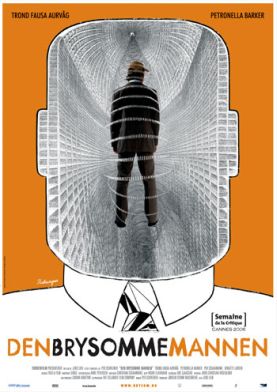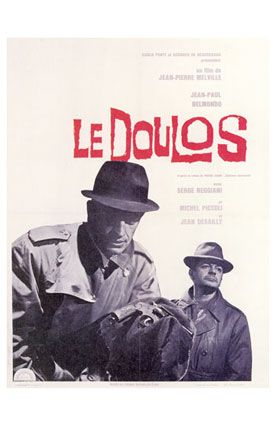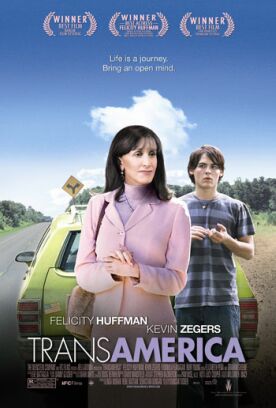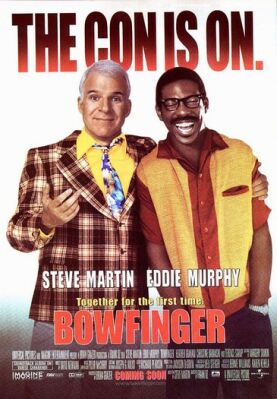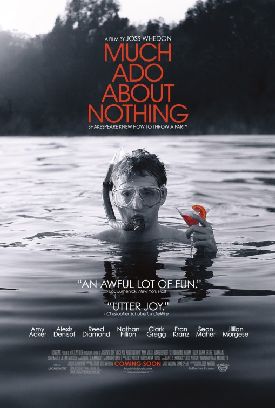Bothersome Man, The (Den Brysomme Mannen)
The Bothersome Man (Den Brysomme mannen) by the Norwegian director, Jens Lien, resembles an episode of “The Twilight Zone” but with better production values. In fact, I seem to remember a “Twilight Zone” episode that told a very similar story. Also like “The Twilight Zone,” it seems to have been designed to get people talking around the office water-cooler. Is it heaven, this antiseptic, blue-gray world in which our hero, Andreas (Trond Fausa Aurvaag), suddenly finds himself welcomed with a job, a home, a girlfriend, a perfect life? Or is it hell? Or is it, perhaps, all happening in the utopia of some parallel universe where death has been abolished and, along with it, love and its consequences — children, passion, jealousy, heartbreak — and the ability to get drunk or to taste food? Or is it all a parable about the consumer paradise and Prozac Nation?
And then there’s the question of why Andreas has no memory, apparently, of where he came from or how he got to this place. Why does he alone appear to feel anything except bland well-being? Why does he become a dissident, the bothersome man of the title, desperate to reach the comforts of reality when everyone else seems so happy with unreality? And what about that really weird ending? Where and in what condition are we supposed to think Andreas ends up?
Of course there is no answer to any of these questions. If there were there wouldn’t be anything for people to talk about — at the water-cooler or anywhere else. Mere speculation would have to give way to something more substantive. There is something a bit too self-conscious about this “Twilight Zone” style. It’s like the Fat Boy in Dickens who was always wanting to “make your flesh creep.” The story that really makes your flesh creep is the one where the story teller doesn’t already know it’s creepy. In the same way, the comedian pretends not to know what he’s saying is funny. It spoils the effect, rather, if he laughs at his own joke.
All that having been said, I have to add that I quite enjoyed The Bothersome Man which, among its other virtues, recognizes that, without death, life is an endless black comedy. And how scary is that? The scene in which Andreas attempts suicide by throwing himself under a train is pure slapstick. He is hit and run over again and again. We hear a sickening crunch and a scream, and then, after he has been tossed about like a rag doll, he gets up and walks out of the train tunnel, covered in blood. A couple of the city’s caretakers come by in one of their electric cars and take him home. There, he is greeted by his girlfriend (Petronella Barker) who, with her unvarying equanimity, tells him that the Nordbys have asked them to go go-carting on Saturday. Does he want to go?
The camera cuts to him, wrapped in a blanket and looking like the mangled corpse he would be in reality. “It sounds nice,” he says.
And then, to complete the joke, we cut to Saturday and Andreas behind the wheel of his go-cart looking particularly silly with his crash helmet on and with no remaining traces of his injuries.
We get the idea that this world is one of perfect stasis and equilibrium. No one is going anywhere. So then the narrative energy is supplied by Andreas’s discovery of a wormhole to reality in a neglected basement from which music can be heard and delicious smells occasionally issue. Andreas and a dubious associate (Per Schaaning) try to enlarge the hole with a jackhammer until they can climb through it to what, for a brief moment we can see is more like our world. There are warm colors and music, the sound of children playing and a tray of cakes — cakes that you can taste — on a kitchen counter. Managing only to snatch a cake and devour it wolfishly, Andreas is caught and dragged back to the blue-gray world by the ever-efficient caretakers.
It is suggested that more than just he in this perfect world are unhappy about being so happy, and some of them want as he does to escape to reality. But nobody else dares to say so, let alone do anything about it. Why or how they are induced to disavow their desire we are never told. Andreas remains the lone dissident, the one bothersome man. Presumably, happiness of this bland kind is a sort of drug on which people get hooked. They dream occasionally of a life without it, but they haven’t the strength or the will to pursue it. It would help if Andreas’s fate revealed what happens to them if they do. It doesn’t, quite. But it does give us something else to speculate about around the water-cooler.
Discover more from James Bowman
Subscribe to get the latest posts to your email.

